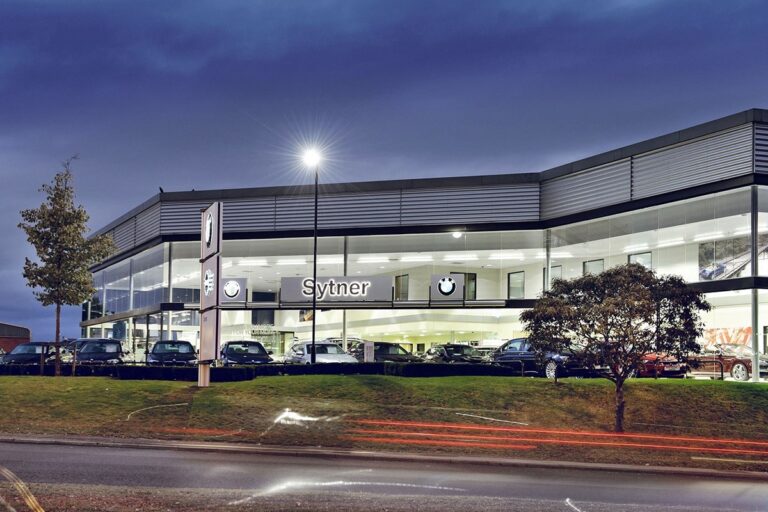Vertu Motors (LON:VTU) the automotive retailer with a network of 125 sales and aftersales outlets across the UK, announced the following update ahead of its preliminary results for the year ended 28 February 2019.
Robert Forrester, Chief Executive of Vertu Motors said:
“The Board expects the trading performance for the year ended 28 February 2019 to be in line with current market expectations. Whilst the outlook remains uncertain, the Group continues to be very well positioned to take full advantage of tougher markets which will, as has been the case in previous sector downturns, provide opportunities. We have a strong balance sheet, underpinned by a property-rich asset base with low levels of debt, a clear focus upon capital allocation and we have an outstanding and stable team.”
Overview
· The Board expects the Group’s underlying trading performance for the year ended 28 February 2019 to be in line with current market expectations.
· In the five months ended 31 January 2019 (the “Period”) the Group saw the following trends in its key channels:
· The high quality, high margin aftersales business saw another significant year on year increase in gross profit generation.
· Like-for-like service revenues grew by 7.4% and overall aftersales margins were stable.
· Used vehicle volumes grew by 4.8% on a like-for-like basis in a market where volumes are expected to have declined due to supply constraints and a more subdued consumer environment. The Group adopted more aggressive pricing strategies, gaining share at the expense of margin.
· New retail vehicle volumes continued to soften in the period, as anticipated. Gross profit per unit grew slightly reflecting pricing discipline and achievement of manufacturer targets. Like-for-like gross margin percentage declined to 7.7% (2018: 8.0%) due to higher prices and a shift in mix towards premium brands.
· Motability sales and new fleet cars saw volume reductions as certain volume Manufacturers reduced their exposure to lower margin channels. In addition, the Fleet car market continued to see an impact of WLTP related supply constraints and deferral of demand by major leasing companies.
· Overall like-for-like margins reduced slightly due to lower used and new car margins. Selling prices of vehicles continue to rise on average.
· Strong, property-rich balance sheet with low levels of debt.
· Vans Direct acquisition settling in well and contributed to Group profits post-acquisition.
· Share buy-back programme: during the Period the Group has purchased 2.7 million shares (0.7% of the issued capital) for £1.0m under the renewed buy-back programme announced on 10 October 2018.
Trading Commentary for the five months ended 31 January 2019 (“the Period”)
Aftersales
The Group has continued to drive the performance of its high quality, consistently high margin, aftersales business during the Period. By focusing on retention initiatives and customer service, the Group is consistently maximising the proportion of new and used vehicle customers who return to the Group’s dealerships for vehicle servicing. The sale of service plans, the performance of rigorous technical vehicle health checks, and the increasing use of video technology to communicate with customers, have all contributed to a 7.4% growth in like-for-like service revenues and a 7.5% growth in like-for-like service gross profit during the Period.
The Group grew its like-for-like parts revenues by 4.0% during the Period achieving a 3.4% increase in gross profit. Overall like-for-like aftersales margins were stable during the Period due to the higher growth rates of the Group’s high margin service operations. Aftersales contributed 41.8% (2018: 39.2%) of the Group’s like-for-like gross profits.
Used Vehicles
The used car market has recorded slight declines during 2018 reflecting two main factors: a softening consumer environment and increasing supply constraints reflecting a weaker new car market in the UK. The Group continued the growth momentum established in the first half of the year, achieving like-for-like sales volume growth of 4.8%. Like-for-like average selling prices grew by 6.0%, however the gross profit per unit was 8.7% lower as the Group adopted more aggressive pricing strategies during the Period to drive volumes and gain market share. Overall gross profit reduced in the Period year on year.
New Cars
The UK new vehicle market recorded 2.37 million registrations in the 12 months to 31 December 2018 (SMMT), a decline of 6.8% on 2017 and the second year of decline from the 2016 peak of 2.69m. These market reductions are driven primarily by supply-side considerations, including in particular the impact of currency on the profitability of Manufacturers importing vehicles into the UK and the introduction of WLTP. Price rises and transfer of supply to other markets continued throughout 2018. In recent months declining demand from other markets (China in particular) has caused certain Manufacturers to take further steps to protect their profitability, in a period of unprecedented investment in Research and Development associated with new powertrains and notably electrification, to respond to a new regulatory environment. During the Period several of the Group’s Manufacturer Partners reduced their exposure to lower margin channels, including fleet and Motability. This was particularly evident with a number of volume Manufacturers, with whom the Group is heavily represented. As a consequence, a number of major Manufacturers have seen significant double-digit declines in their 2018 UK fleet and new retail private and Motability registrations.
The Group’s like-for-like new retail vehicle volumes declined by 6.8% during the Period, outperforming the market and gaining market share, whereas the SMMT data showed an overall fall of 9.8% in UK private registrations. Like-for-like gross profit per unit increased by 3.4%, from £1,449 to £1,499, and like-for-like gross margins fell slightly due to continued increases in like-for-like selling prices, which rose by 6.3%. Higher selling prices reflect the pressure of currency on pricing given the high level of cars sold in the UK imported from the EU together with the increasing premium franchise mix of the Group.
Fleet & Commercial
The Group’s fleet car business declined during the Period in line with the changes in market positioning of the Group’s volume Manufacturer Partners who pulled back from these lower margin car channels, and increased prices. As the mix shifted towards the Group’s premium Manufacturer Partners and vans, the Group saw higher like-for-like average selling prices up 5.1% to £20,080 per unit, and an 18.7% increase in like-for-like gross profit per unit to £707 (FY 2018: £595) with like-for-like margin up to 3.6% (FY 2018: 3.3%). The light commercial vehicle market remains robust reflecting underlying economic strength in the UK.
Operating Expenses
Underlying cost pressures continue to impact the Group’s trading performance as witnessed in the wider retail market. For the five months to 31 January 2019 the Group’s operating expenses as a percentage of revenues increased only marginally from 9.9% to 10.0% reflecting management continuing to focus on costs throughout the business.
VAT Repayment
During the Period the Group received VAT repayment of £3.1m resulting from a retrospective claim following HMRC’s clarification of the VAT treatment of dealer deposit contributions. This will be excluded from underlying profits in the Group’s results for the year ended 28 February 2019.
Portfolio changes
On 4 January 2019 the Group acquired Vans Direct, a well-established on-line commercial vehicle retailer, for an estimated consideration of £7.5m. This acquisition is settling in well, and is being integrated, where appropriate, with the Group’s light commercial vehicle franchised activities.
With a continued focus upon capital allocation, the Group realised a further £0.6m of cash from the sale of surplus property assets during the Period.
Balance Sheet
The Group has a strong balance sheet with a significant freehold property portfolio, a used car inventory largely unencumbered and very low levels of debt, providing considerable resilience and firepower for future growth. The Board continues to assess further acquisition opportunities, utilising strict investment return metrics to ensure discipline in capital allocation.
Future Prospects
While positive on the anticipated performance of aftersales and used cars, the Board remains cautious on the overall outlook for the next financial year. The UK’s exit from the EU is creating some uncertainty for the Group’s private and business customers. In addition, unpredictability over tariffs and Sterling levels create an unprecedented level of uncertainty for Manufacturers and Retailers alike on the future levels and profitability of new vehicle supply into the UK from the EU. Notwithstanding this, the Board is implementing plans to deliver the inherent opportunities for improvement of operational performance and profitability that exist within the current dealership portfolio.
The Group’s interim results announcement highlighted that several of the Group’s Manufacturer Partners were considering, and in some cases implementing, changes to the way in which parts are distributed to their retailers and the independent aftermarket. Ford has now commenced a reorganisation with the transfer of trade operations to new parts hubs operated by retailers on an agency basis, where stock and debtor risk transfers to the Manufacturer and the Group receives a handling fee. The Group is therefore in a transition from the traditional parts supply model to this agency model. As a consequence, three parts hub contracts are now in operation by the Group and a further three will be commenced by February 2020. Consequently, parts revenues and costs will be reduced as this progresses and £3.9m of working capital is expected to be released over the transition period. We estimate £3.0m of working capital will have been released in the period to 28th February 2019. These changes are also anticipated to reduce the Group’s ongoing profitability by £0.8m. Discussions with other Manufacturer Partners are ongoing with no major impact in the year ending 29 February 2020 envisaged.
The Group’s very strong balance sheet and financial position enables the Board to have confidence that it can take advantage of opportunities as they present themselves.
The Group will announce its preliminary results for the year ended 28 February 2019 on 8 May 2019.
Board Appointment
Further to the announcement of Directorate changes made on 13 December 2018, Vertu Motors plc, the automotive retailer with a network of 125 sales outlets across the UK, is pleased to confirm the appointment of Karen Anderson (aged 47), as Chief Financial Officer and as a Director of the Company with immediate effect. Michael Sherwin has stepped down as CFO and director of the Company from the same date.
The Company also announces that Karen Anderson has stepped down as Company Secretary with effect from 1 March 2019 and been replaced by Nicola Loose, who will take up the role in addition to her current role as the Company’s General Counsel.
The following information is disclosed pursuant to Schedule Two paragraph (g) of the AIM Rules for Companies:
Karen, together with her PCAs, holds 848,312 ordinary shares of 10p each in the Company (“Ordinary Shares”) and 930,000 share options over Ordinary Shares. As part of the Company’s long-term incentive plan (“LTIP”), Karen has been granted 222,331 share options over Ordinary Shares which have not yet vested and remain subject to certain performance criteria.








































